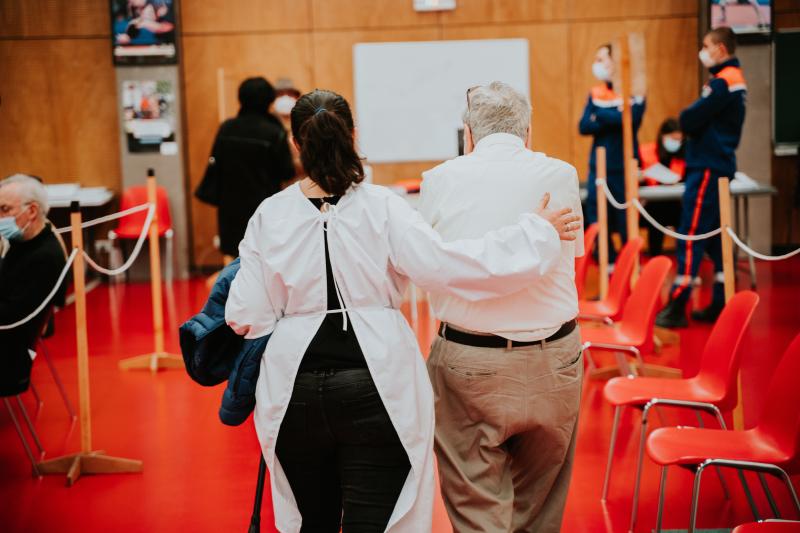Round table event, 12 July
Over a million people in the UK believe they have lingering symptoms of ‘Long Covid’, which can range from brain fog and fatigue to chest pain and breathlessness. In fact, it’s thought that one in five people with Covid will go on to develop longer term symptoms.
In response, the NHS in England is rolling out an extensive network of services where patients sent by their GPs can be assessed and treated on site, or referred on to other specialities. Teams include doctors, nurses, physiotherapists and occupational therapists.
But these clinic teams and their commissioners/directors face a huge challenge; to design and deliver care for a condition we still know very little about. They will need to constantly assimilate and use new knowledge as it emerges; whether from research, practice, or patients’ personal experiences, without becoming overwhelmed by the volume of information. And the more consistent the care they can provide, the better the benefit all round
That’s where the Strategy Unit comes in. We will be working closely with colleagues in NHS England and Improvement (Midlands) and Public Health England (Midlands). Together, we will work with 11 specialist care partnerships all across the Midlands region, supporting them to gather, evaluate and share what they are learning about Long Covid, and finding out which care models work best. Using our expertise in analysis, we’re hoping to streamline the time it takes for that essential knowledge to get to the people who need it most.
We know that learning from research and practice isn’t always implemented, and this particular situation is unprecedented because we know so little; and the potential harm to patients of not keeping up with emerging knowledge is significant.
This is an almost unprecedented opportunity to create a ‘learning’ process for Long Covid; bringing together everyone involved to find out what they’re all experiencing, so they can know what is and isn’t working, right from the start. The findings could have national, or even international, implications.
We want to avoid unnecessary duplication, so we can make sense of the environment, understand what works, and gauge the impact of actions and decisions – and make it easier for frontline workers to act.
That way, we hope to provide better outcome for patients; speed up the efficiency and responsiveness of the services, and reduce the financial burden on the NHS.
We’re inviting those involved with all of these Midlands services to join us in our launch event, a roundtable workshop on July 12, where we will kick off the process and begin learning and collaborating in earnest, looking at issues such as referral gaps, discharge times and treatment options.
Please join us – this can’t happen without your expertise and help!
Contact me, Alison Turner, if you’d like to know more and get involved.
